|

songs | interviews | photos | tours | boots | press releases | timeline
Lufthansa Magazin (Germany)
Lufthansa airline inflight magazine
January 2013
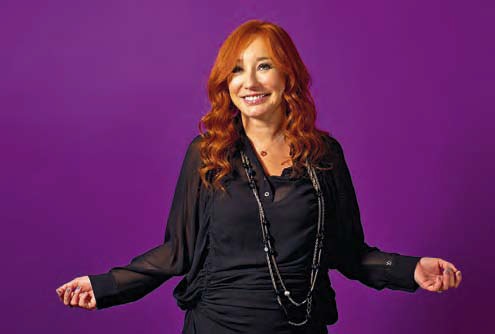
sky talk
Tori Amos:
"I'm like an aromatic spice"
Fiery red hair, soulful lyrics and her signature Bösendorfer piano -- Tori Amos is a
striking phenomenon on stage. The charismatic musician talks to Lufthansa
Magazin about getting up at dawn to practice the piano, her love of literature and
learning, and the art of making herself scarce
Interview Annette Utermark
Fotos Oliver Mark
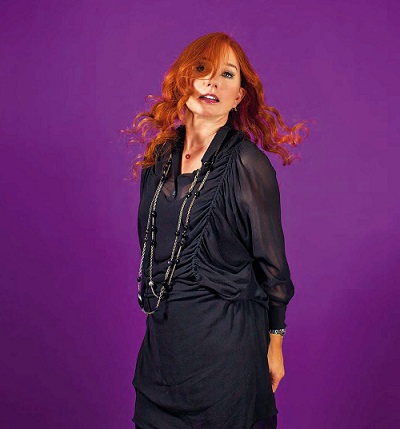
Tori Amos, singer and pianist, was born August 22, 1963, in North Carolina, USA. She signed her first recording contract in 1986, when she was only 23. "Little Earthquakes," her first big success, came out six years later. Tori Amos, who enjoys wearing high heels and displaying eccentric behavior on occasion, has published 13 albums and sold more than 12 million records and CDs to date. Her latest album, "Gold Dust," was recorded with the Netherlands-based Metropole Orchestra, and includes new spins on some of her most popular songs.
Ms. Amos, you started playing the piano when you were two and a half years old. Would you describe yourself as a child prodigy?
I personally can't remember much about that period of my life but my mother told me that I could play the piano before I could talk. My parents consulted experts, who said that sort of thing was possible and that I had talent, so my mother made sure to provide me with a good musical education.
Did you really want to play an instrument when you were little or was it your ambitious parents who encouraged you to do so?
Learning an instrument was something I chose. When I was little, I would start playing as soon as the sun rose and continue for house. It drove my brother and sister out of their mind to have to listen to me all the time.
When you were five you won a scholarship to the famous Peabody Institute Conservatory in Baltimore, Maryland, where Philip Glass also studied. What do you remember about that time?
During the week I attended a regular elementary school but on Saturdays, when all the other children my age were out playing, I was at Peabody. I had to practice every day, which didn't leave any time for watching television or spending time with friends. I had a clock in front of my that showed exactly how long I had practiced. It wasn't fun at all, and I often cried. My mother didn't know what to do because she could see how much I hated my theory lessons.
But you stuck at it and remained at the conservatory for six years until you were finally asked to leave at the age of 11. What happened?
I was forced to learn the classics when all I really wanted to do was listen to and analyze Beatles songs. But they just told me that the Beatles would be long forgotten 30 years down the line. I got into more and more arguments with my teachers until I was finally asked to leave.
You started performing in bars when you were only 13. Your father, a Methodist preacher, can not have been very pleased about that...
He wasn't. But he had no choice. The first place that allowed me to play for tips was a gay bar in Georgetown. A couple of months later I got another gig and then, somehow, I got my first recording contract. My parents often accompanied me to my gigs, by the way.
Did they fully support your career?
Yes, but they had their principles, particularly when it came to the church. My father didn't want me to criticize the chuch in my songs, and he didn't want me to play songs that criticized it, either. Of course I didn't listen to hum, I was very rebellious back then (she laughs). But today we get along wonderfully again.
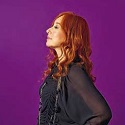 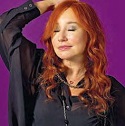 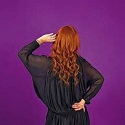 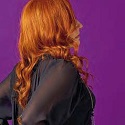
You were born in North Carolina but you and your husband and your 12-year-old daughter Natashya now live in Cornwall. What made you decide to leave the United States and move the family to England?
We live in England and Florida. Tash was born shortly before the election in September 2000, not far from the White House in Washington. When she was four months old, we moved to England because I was recording a new album and that's where my husband's sound studio was. My husband is British, I think of him as my Sir Gawain who took me away (she laughs). I like living in Cornwall with him, in his space. I'm sort of a tourist because I only live there part of the time, but I don't mind that. We live in the country, we see the stars, we're away from noise pollution and other stressful things in life.
What do you do, living in the country, do you go horseback riding?
Oh no, that's too dangerous. I'm a pianist and I'm not insured, so I can't ride a horse or a bike. I can't even ski. Practicing the piano every day is a bit like riding. When I straddle the piano saddle the musical ride begins. Otherwise, I also like to read a lot because I like to keep up with history, keep up with the world. In my innermost heart I'm a librarian (she laughs).
What kind of books do you like to read?
I've been collecting books from around the world for twenty years now. Mostly, they're books about mythology, but also about art and architecture. We have a library at my house in Florida. Actually, my friend Neil Gaiman, the British writer, has just finished his most recent book there because the library has so many good reference works.
Your songs often describe powerful emotions in a very poetic way. To what extent are the experiences you describe personal and to what extent the product of your imagination?
It's different from song to song. Nothing is my diary, it's just songwriting. In general, it's a combination of personal experiences and what other people have told me. My husband and my daughter think that my lyrics are the result of my complex childhood and adolescence. Tash is often shocked by my extreme descriptions of emotions, and I can understand that very well.
Your husband, Mark Hawley, is also your recording director. Does your relationship change when you're in the studio together?
We definitely slip into different roles when we're in the studio, but it's something we're not really conscious of. Back home after a day of recording we often discuss a line of lyrics or a melody for hours. This really irritates our daughter, and she gets very stern with us, saying: "Can I please have my parents back now?"
You once said that your husband was your muse. Is that still true after 15 years of marriage?
Yes, and I have learned that he has to miss me in order for us to be close. My daughter is exactly the same. Of course I love having my family around me, but I'm like an aromatic spice that tastes good here and there in small amounts, but if you add it in everything, it's not special anymore. That's why I sometimes need to get away, make myself scarce. Luckily for me, I often get the opportunity to travel thanks to my music, which takes me away a lot.
You like to experiment with different musical styles, and right now, it's classical music. Have you decided that this is where you want to be, do you feel like you have found a new musical home?
Classical music is where I come from. I try to access the roots of each new project that I start on. I studied ballet music, for instance, to prepare for writing the musical that I'm currently working on. And I got to know flamenco more intimately on a recent trip to Madrid. I also incorporate elements like these into my songs. When you travel, you don't ask yourself, "What do I already know?" so much as "What can I learn from my travels?" And so I would say that everything around me contributes to my musical vocabulary -- in a process that isn't nearly finished.
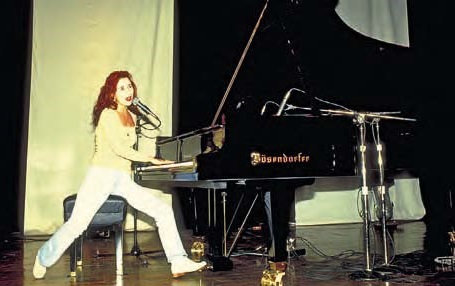
Tori Amos in the early days of her career, at the Town Hall in New York City in 1992.
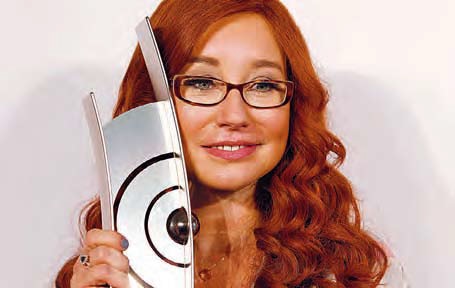
Tori Amos in Berlin in October, 2012, where she received a Klassik Echo award in the category "Klassik ohne Grenzen" (classical music without borders) for her Night of Hunters album.
[source/.pdf of full issue]
t o r i p h o r i a
tori amos digital archive
yessaid.com
|